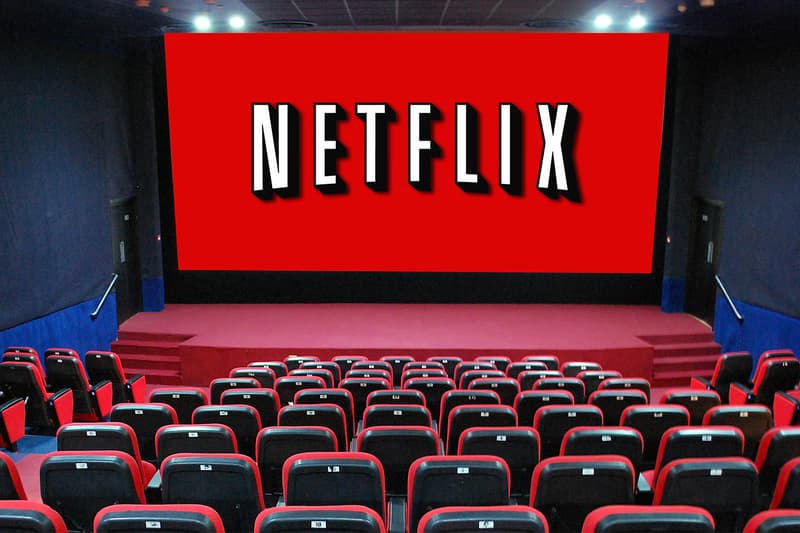Want to hear more from the actors and creators of your favorite shows and films? Subscribe to The Cinema Spot on YouTube for all of our upcoming interviews!
The movie theater industry has been hit hard this year due to the ongoing pandemic and there exists a belief that these losses might drive the final nail in the coffin. After multiple delays of blockbuster films this year, it seems likely that no big-budget movies will premiere in theaters for the remaining three months. Even the Christmas day releases like Wonder Woman 1984 still seem likely to move as Covid-19 cases increase during the Fall and Winter. Cinema lovers like myself have come to face a hard fact. The cinema-going experience may never be the same again.
I’m not a betting man but if I had to weigh the odds of this precious industry staying alive, I would bet that…well…it’s complicated. I don’t believe that movie theaters will completely go away. There will always be a demand for the big-screen experience. Audiences, like myself, love the huge screen, surround sound audio, the smell of popcorn, and (in most cases) the reactions from a hyped-up crowd. It is one of the few experiences in which you can completely escape the world and your worries, at least for a couple of hours. It isn’t always a perfect experience, but when things go right, it is one of the best feelings in the world. That is why the continued rise of streaming is bittersweet. The sheer convenience and direct-to-consumer aspects of streaming are undeniably a clear advantage over theaters. For those who don’t live near major cities showing limited release films or those who just live far from a theater period, the ability to stream films from home is incredibly significant. Even for those who have immediate access to a theater, streaming allows a level of comfort and personalization that you just can’t get at the cinema.
For some families, it is hard to justify the cost of the theater-going experience considering what they would pay to stream. Watching films at home allows you to bring your own food and drinks, pause the movie for a bathroom break so you don’t run the risk of missing anything important, and control the chatter and distractions that sometimes plague the theater. Also, with so many films getting picked up by Netflix, Amazon Prime, Apple TV+, etc., families can essentially watch some new films for free. Take for example Netflix, a service that almost every family seems to have. Many will argue that they pay for Netflix primarily due to their selection of TV shows and original series. When a new film, such as Marriage Story, premieres on Netflix, subscribers who normally wouldn’t pay to see that film in theaters will happily stream it at home.
Some have argued that the streaming experience does not represent or come close to the experience of seeing a new film in a theater. For many filmmakers, there is a concern that streaming may take away the effect of new films and present an impure experience. Visionary directors like Christopher Nolan would shudder at the thought of Dunkirk being watched on an iPhone for the first time. Others say that the shared, communal experience of the theater is essential for watching a new film. Some of these industry leaders may be underestimating the benefits of streaming for most consumers. Studios have been delaying films for months now in order to ensure a worldwide theatrical experience. At what point do these studio heads decide to take a gamble and stick a big-budget tentpole film on streaming? The pandemic shows no sign of slowing down anytime soon. In fact, it may get worse as we enter the colder months of Fall and Winter, causing early 2021 releases to potentially be delayed again. After a certain point, these movies can’t keep getting pushed back. Families will be hungry for new content, especially big, crowd-pleasing action films. Many film studios also have their own streaming services now. WarnerMedia has HBO Max, Disney has Disney+, Universal has Peacock, and so on. These streaming services are still young and looking for more content to draw in new subscribers. What better way to sell consumers on your service than by adding Wonder Woman 1984, Black Widow, or Fast 9? It seems strange to imagine watching films like those at home for the first time, but in the age of COVID, many will be desperate enough to skip the theater.
I believe that many in the film industry realize the potential of streaming. It very well may be the only option for experiencing new films in the future. WarnerMedia has even created a new film label, Warner Max, to serve as the feature production arm of HBO Max. Studios are catching up with Netflix and beginning to develop films exclusively for these services. Streaming allows companies to directly reach consumers and take risks on projects that might not normally perform well in theaters. One prime example of this is Zack’s Snyder’s upcoming Justice League miniseries. If it weren’t for the existence of HBO Max, I’m not sure how willing WB or ATT would have been to put this film/series in theaters. Speaking of DC, it has been revealed that WB may have an interest in developing DC films exclusively for HBO Max under the Warner Max label. This is a clear sign that some studios are realizing that the future of cinema is not guaranteed with theaters. Five years ago the idea of putting something like a Nightwing film on streaming would sound ridiculous. Now, it seems perfectly reasonable to expect a film of that caliber on HBO Max.
Audiences appreciate the ability to access new content at their fingertips. Cinema lovers would deeply miss the theater experience, but for many consumers, especially families, they won’t bat an eye at streaming new films instead. With new TVs getting bigger and clearer and surround sound becoming more affordable for average families, it may not be too hard to replicate the theater experience from your living room. Those who are willing to go the extra length to replicate the experience can look into purchasing a 4K projector and set up a theater room in a dark room of the house (or basement). Filmmakers may worry that the end of theaters would also mark the end of the true movie-watching experience, but just because a film is watched at home doesn’t mean its impact is felt less. I have personally had some pretty awful theater experiences that took away from my enjoyment of certain films. Audiences can talk through a movie, text on their phone, chew food too loudly, or just be a disturbance in general. At least at home, you have the ability to watch a film in peace and have some level of control over your environment.
The loss of movie theaters would be an incredibly hard pill to swallow. Many like myself love the feeling of sitting in a theater and watching the lights go down as the smell of buttered popcorn fills the air. It is an experience unlike any other. But to look realistically at the current situation, the process of streaming taking over the film industry has accelerated rapidly over the past six months and theater chains may soon lose hope of return. Streaming was once a taboo word among film purists, but it may now remain as the only option to guarantee the future of the industry. Studios will have to adapt to the times and take full advantage of their newly launched streaming services to continue to compete. The film industry is about to undergo massive changes and it will be interesting to see the lasting effects the pandemic has on cinema.
Be sure to follow us on Twitter @TheCinemaSpot and on Instagram @thecinemaspot_





9 Comments on “Is Streaming the Future of Cinema? – Discussion”